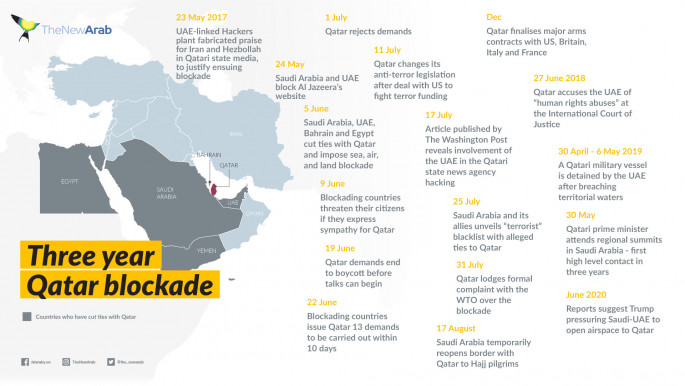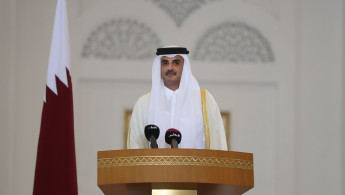'Vindicated Qatar' says blockading states will face justice after ICJ ruling
"We welcome today's decision by the ICJ that will see the blockading states finally face justice for violating international aviation rules," Qatar's Minister of Transport and Communications, Jassim Saif Ahmed al-Sulaiti, said in a statement.
The ICJ ruling allows Qatar to challenge airspace restrictions imposed by Saudi Arabia, the United Arab Emirates, Bahrain and Egypt over three years ago, before UN aviation body the International Civil Aviation Organization (ICAO).
Saudi Arabia and the UAE said they respected the decision but denied the ruling dealt with the merits of the case.
In June 2017, the four countries severed diplomatic ties with Qatar and imposed an aviation embargo on the gas-rich Gulf state, accusing it of backing radical Islamists and Iran.
Twitter Post
|
"We are confident that the ICAO will ultimately find these actions unlawful. This is the latest in a series of rulings that expose the blockading countries' continued disregard for international law and due process," Sulaiti said.
"Step by step their arguments are being dismantled, and Qatar's position vindicated."
The Hague-based court unanimously "rejects the appeal" by the rival states against a decision by the world civil aviation body in favour of Qatar over sovereign airspace, ICJ President Abdulqawi Ahmed Yusuf said.
Read more: GCC crisis explained: Why is Qatar under blockade by Saudi Arabia and its allies?
The ICAO in 2018 ruled it had the jurisdiction to handle a dispute brought by Qatar, which accused its neighbours of violating a convention that regulates the free passage of its passenger planes through foreign airspace.
But the four allies disagreed, saying the ICAO was not the right body to judge in the dispute and that its decision to do so was "manifestly flawed and in violation of fundamental principles of due process and the right to be heard."
They had asked the ICJ to declare the aviation body's ruling "null and void and without effect."
Reacting to Tuesday's decision, Saudi Arabia's ambassador to the Netherlands, Abdulaziz Abu Haimad, said on Twitter that Riyadh respected the court's decision but that the ruling had nothing to do with the merits of the case.
The UAE said it "will now put its legal case to ICAO supporting the right to close its airspace to Qatari aircraft".
"The ICJ's decision was technical and limited to procedural issues and jurisdiction to address the dispute; it did not consider the merits of the case," the UAE's ambassador to the Netherlands, Hissa Abdullah al-Otaiba, said in a statement.
Follow us on Facebook, Twitter and Instagram to stay connected





 Follow the Middle East's top stories in English at The New Arab on Google News
Follow the Middle East's top stories in English at The New Arab on Google News
![Netanyahu furiously denounced the ICC [Getty]](/sites/default/files/styles/image_330x185/public/2024-11/GettyImages-2169352575.jpg?h=199d8c1f&itok=-vRiruf5)
![Both Hamas and the Palestinian Authority welcomed the ICC arrest warrants [Getty]](/sites/default/files/styles/image_330x185/public/2024-11/GettyImages-2178351173.jpg?h=199d8c1f&itok=TV858iVg)
